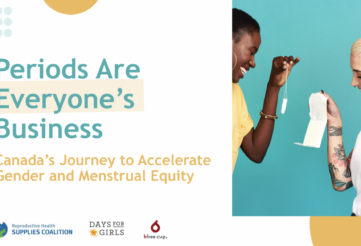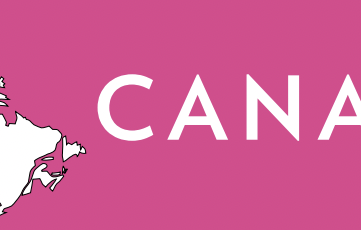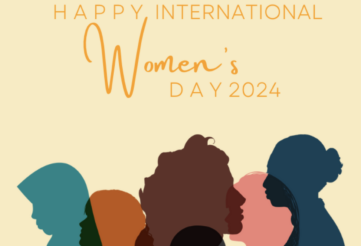Advancing Menstrual Equity in Malawi
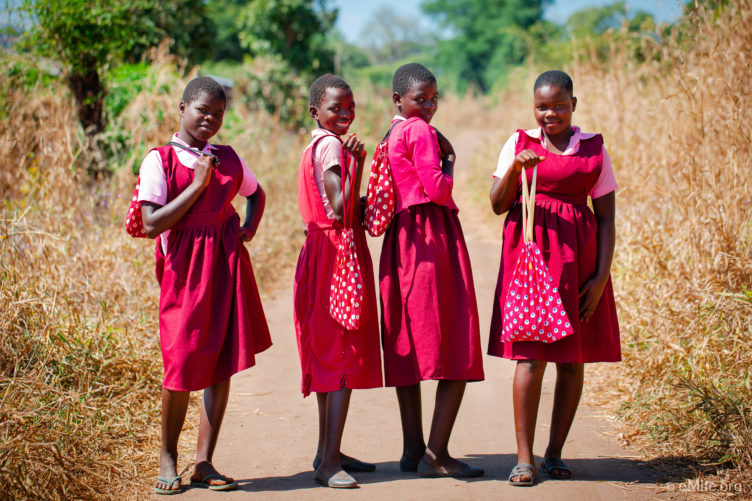
At Days for Girls, we envision a world in which communities, nations and global leaders all come together to fight for menstrual equity and rally in support of every girl.
This year, we’re closer than ever to making this dream a reality. For the first time in DfG history, we’re poised to scale our impact to an entire country – thanks to an exciting new partnership with the First Lady of Malawi, Her Excellency Madame Monica Chakwera’s foundation, Shaping Our Future Foundation (SOFF).
Together, we’re launching a robust national program that aims to transform the menstrual health landscape of Malawi – so that more Malawian girls are supported at home, at school, in their community and at every level of government.
Uplifting Girls in Malawian Schools & Communities
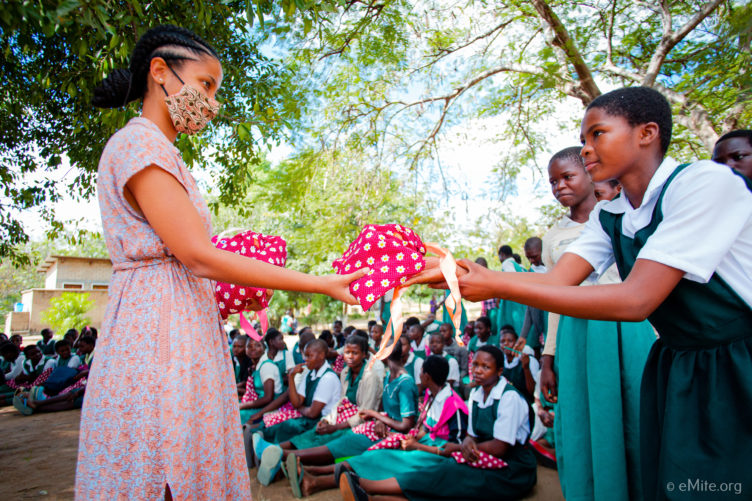
Period poverty poses a serious threat to the upward mobility of Malawi’s four million reproductive-aged women and girls, the vast majority of whom lack access to menstrual supplies.
Days for Girls has worked tirelessly to fight this trend in Malawi since 2014 – distributing almost 46,000 DfG washable pads along with health education over the past seven years. We also established five thriving social enterprises helmed by our incredible DfG Malawi team: Country Representative Eunice Chimphoyo-Banda and Social Entrepreneurs Mabel Ngolleka and Yamikani Chikoti. These DfG champions now play a key role in our efforts in the DfG/SOFF national program, buoyed by an essential support network of seamstresses, advocates and volunteers.
Under the new partnership with SOFF, our approach to shifting the menstrual health paradigm in Malawi is threefold:
- Distribute Days for Girls Kits in schools, starting with a pilot distribution of 6,700 Kits in 7 different districts by the end of the year (630 of which were distributed this summer in Mangochi district)
- Shatter menstrual stigma by delivering accurate health education to students and adults
- Build connections with local, national, and international policymakers, tribal chiefs, coalitions, and organizations who help to advance, accelerate and amplify the importance of menstrual health in Malawi.
Scaling impact to an entire nation is no easy task. But through collaboration with fearless leaders at every level of government – and with crucial support from local, national, and international changemakers – we’re well on our way.
Making An Impact, Together
The national program officially kicked off on May 28, 2021, with a highly-publicized event that drew one thousand attendees from all over the country.
It was an incredible launch.
The Hounorable Patricia Kaliatiat, Malawi’s Minister of Gender, Children, Disability and Social Welfare, who spoke at the First Lady’s invitation, captivated the crowd with a rousing clarion call to keep girls in school and end the country’s sky-high child marriage rate (42% – one of the highest in the world) – and demanded swift action from the tribal chiefs in attendance.
We also heard from student representatives from local secondary schools, members of the District Executive Committee, Plan International’s Country Director and Days for Girls Founder/CEO, Celeste Mergens. The audience buzzed with anticipation as each speaker shared their vision of a more equitable Malawi; DfG Kits were distributed in a symbolic gesture. Hope was in the air.
“The only way to reach every girl is with the scale of appropriate solutions,” Celeste says. “The event in Malawi, and the partnerships and commitments it showed, was part of the proof that it can be done. Having attended so many events, this one felt different.”
“The shift to menstrual equity starts with courageous conversations,” she adds. “There are a lot of things that are hard to change in this world, but menstrual equity is one we can solve in our lifetime.”
We are so grateful to all of the partners, supporters and local leaders who helped bring this initiative to life – and whose efforts made the launch event a wild success. Thank you to the Ministers of Health, Education, Gender; UNFPA; Plan International and (of course) the First Lady of Malawi, and her foundation SOFF, for pledging their long-term commitment to this work. Thank you to our behind-the-scenes sponsors, including This is L, eMite, doTERRA Healing Hands, Goldman Sachs, Open Road Alliance, and the Whitt Family Foundation for their vital financial support.
And thank you to our own team of rockstars: Eunice, Mabel and Yamikani, without whom none of this would be possible.
A New Chapter Begins
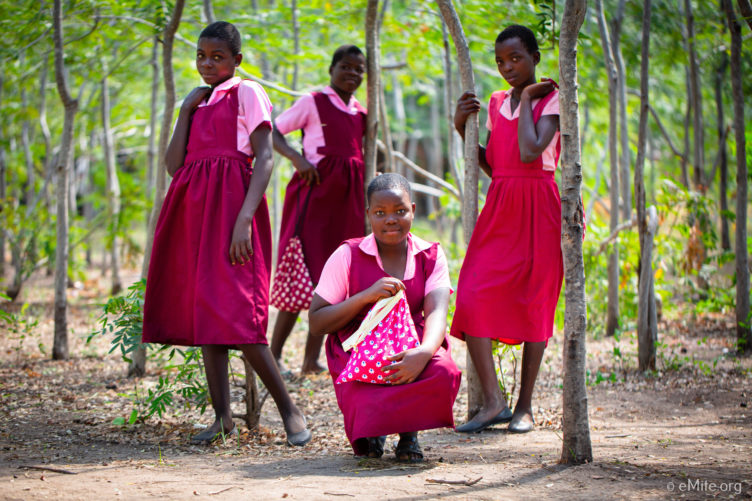
The program’s overarching goal is to surround Malawian girls with support at home, at school and in their communities. In turn, this will empower more girls to stay in school, stay out of early marriages and go on to fulfill their highest potential.
Menstrual equity is a key part of the solution. Without access to period products, health information and supportive policies, many girls are forced to drop out of school – and left vulnerable to child marriages and unwanted pregnancies.
In Mangochi District, where we held our first pilot distribution this summer, officials found a 14-fold decrease in school attendance after the average age of menarche (the number of girls enrolled in school dropped from 11,000+ to a mere 700). One teacher even reported losing one third of his female students to child marriages after primary school this year.
“You cannot reach national economic goals by sidelining women, by not empowering women,” Eunice says. “One of the ways to empower women is by ensuring that her needs for getting an education are met,” adding that supportive menstrual health policies, like the ones proposed by the partnership, are a critical part of this.
But things are already starting to change.
A month after the program launch, the chief in Mangochi told us a number of girls had resumed their classes – and that local leaders were working to support the safe return of many more. Meanwhile, SOFF and partners are in the process of purchasing even more DfG Kits for distribution and launching a Men Who Know program , while school officials are discussing new ways to incorporate DfG curriculum into classrooms nationwide (with a robust monitoring, learning and evaluation program to measure out impact in the coming months).
It’s the beginning of a beautiful new chapter for Malawi– and, hopefully, a new menstrual health precedent for countries around the world. We are proud to stand here on the precipice of change, and can’t wait to see how our impact unfolds from here.
*A special thanks to eMite and their videographer/photographer, Carlos Autor who sponsored and produced the wonderful video and photos shared in this blog post.







